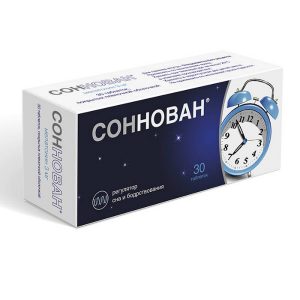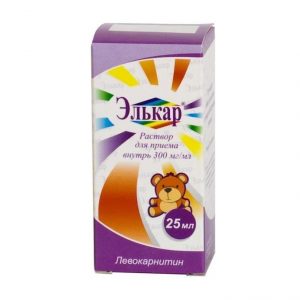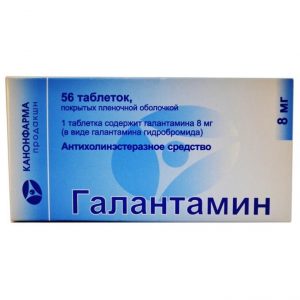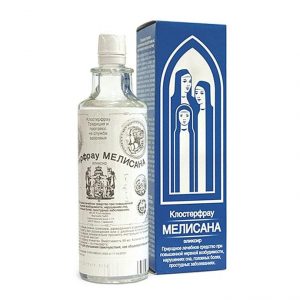Description
packaging 20 pcs
Pharmacological action
Noofen is a nootropic drug derived from gamma-aminobutyric acid and phenylethylamine. It has tranquilizing properties, stimulates memory and learning ability, increases physical working capacity, eliminates psycho-emotional tension, anxiety, fear and improves sleep. Does not affect choline and adrenoreceptors.
The drug lengthens the latent period and shortens the duration and severity of nystagmus. It significantly reduces the manifestations of asthenia and vasovegetative symptoms, including headache, a feeling of heaviness in the head, sleep disturbance, irritability, emotional lability, increases mental performance, improves well-being, increases interest and initiative, motivation for active work without a sedative effect or arousal.
In contrast to tranquilizers, under the influence of Noofen, psychological indicators improve (attention, memory, speed and accuracy of sensory-motor reactions). The formation of addiction and dependence on the drug, withdrawal syndrome was not noted.
Pharmacokinetics
Absorption and distribution of
After oral administration, the drug is well absorbed and penetrates into all tissues of the body. About 0.1% of α-amino-β-phenylbutyric acid hydrochloride penetrates into the brain tissue from the dose taken, in patients at a young and old age an increase in penetration through the BBB is possible. After 3 hours, β-amino – phenylbutyric acid hydrochloride is detected in the urine, at the same time the concentration in the brain tissue does not decrease, it is detected in the brain after another 6 hours.
With repeated use, the drug does not accumulate in the body.
The highest binding of -amino – phenylbutyric acid hydrochloride occurs in the liver (80%), it is not specific.
Metabolism and excretion
80-95% of the drug is metabolized in the liver to pharmacologically inactive metabolites. 5% is excreted from the body by the kidneys unchanged. The day after taking the drug -Amino – phenylbutyric acid hydrochloride can be detected only in the urine, it is determined in the urine 2 days after administration, however, the detected amount is 5% of the administered dose.
Indications
asthenic and anxiety-neurotic states
stuttering, tics and enuresis in children
insomnia and nighttime anxiety in the elderly
Meniere’s disease, dizziness associated with dysfunction of the vestibular analyzer of various genesis
prevention of motion sickness during
kinetoses as part of complex therapy for alcohol withdrawal syndrome for the treatment of psychopathological and
Contraindications
acute renal failure
pregnancy
lactation period
children under 8 years of age (for this dosage form)
rare congenital galactose intolerance, lactase deficiency or glucose-galactose malabsorption (malabsorption) the components of the drug.
With caution, the drug should be prescribed to patients with erosive and ulcerative diseases of the gastrointestinal tract (due to the irritating effect of the drug, it is recommended to prescribe the drug in lower doses).
Pregnancy and lactation
Pregnancy and lactation are not recommended because there are not enough clinical observations.
In experimental animal studies, the mutagenic, teratogenic and embryotoxic effects of the drug have not been established.
Composition
1 capsule contains:
Active ingredient: aminophenylbutyric acid hydrochloride 250 mg
Excipients: lactose monohydrate – 180 mg, potato starch – 67.5 mg, calcium stearate – 2.5 mg.
The composition of the capsules No. 0 is white: titanium dioxide (E171) – 2%, gelatin – up to 100%.
Dosage and administration
Inside after a meal with water. The capsule cannot be chewed.
Asthenic and anxiety-neurotic conditions: adults – 250-500 mg 3 times a day. The maximum single dose for adults is 750 mg, for patients over 60 years old – 500 mg. If necessary, the daily dose is increased to 2.5 g. The course of treatment is 4-6 weeks.
Stuttering, tics and enuresis in children aged 8 to 14 years – 250 mg 2-3 times a day in children over 14 years old – doses for adults.
Insomnia and nighttime anxiety in elderly patients – 250-500 mg 3 times a day.
To eliminate dizziness with dysfunction of the vestibular analyzer of infectious genesis (otogenic labyrinthitis) and Meniere’s disease: during the exacerbation period, 750 mg are prescribed 3 times a day for 5-7 days, with a decrease in the severity of vestibular disorders, 250-500 mg 3 times a day day for 5-7 days, then – 250 mg once a day for 5 days. With a relatively mild course of the disease – 250 mg 2 times a day for 5-7 days, then 250 mg 1 time per day for 7-10 days.
To eliminate dizziness with dysfunction of the vestibular analyzer of vascular and traumatic genesis, 250 mg is prescribed 3 times a day for 12 days.
For the prevention of motion sickness during kinetosis: 250-500 mg once 1 hour before the intended journey or when the first symptoms of motion sickness appear. The anti-stopping effect of Noofen increases with increasing doses of the drug. With the onset of severe manifestations of seasickness (including indomitable vomiting), taking the drug orally is ineffective even at a dose of 750-1000 mg.
As part of complex therapy for alcohol withdrawal syndrome, for the relief of psychopathological and somatovegetative disorders, 250-500 mg 3 times a day and 750 mg at night are prescribed in the first days of treatment with a gradual decrease in the daily dose to the usual for adults.
Do not take a double dose to replace the missed dose.
In patients with renal and / or liver failure, prolonged use should monitor renal and / or liver function.
In case of impaired liver function, high doses of the drug may cause hepatotoxicity. Such patients are prescribed the drug in smaller doses.
Side effects
From the nervous system: drowsiness and increased symptoms (at the beginning of treatment), dizziness, headache.
From the digestive system: nausea (at the beginning of treatment).
From the skin and subcutaneous tissues: rarely – allergic reactions (skin rash, itching).
From the liver and biliary tract: with prolonged use in high doses – hepatotoxicity.
If any of these side effects are exacerbated, or if the patient has noticed any other side effects, you should inform your doctor.
Drug Interaction
For mutual potentiation, Noofen® can be combined with other nootropic drugs by reducing the doses of Noofen® and combination drugs.
Extends and enhances the effects of hypnotics, antipsychotics and antiparkinsonian drugs.
Overdose
Noofen® is low toxic. There were no reports of overdose.
Symptoms: drowsiness, nausea, vomiting, dizziness. With prolonged use of high doses can develop eosinophilia, arterial hypotension, impaired renal activity, fatty liver (intake of more than 7 g).
Treatment: gastric lavage, symptomatic treatment, maintenance of vital functions. There is no specific antidote.
Storage conditions
In a dry, dark place at a temperature of 15–25 ° С.
Expiration
2 Year
Deystvuyuschee substances
Amynofenylmaslyanaya acid
Pharmacy leave
prescription p17pffpf71pffpf71pfpffpffpfpf17pffpfpffpffpfpfpfpfpfpfpfpfpfpfpfpfpfpfpfpfpfpfpfpfpfpfpfpfpfpfpfpfpfpfpfpfpfpff Pharmacy terms
Prescription
Dosage form
Dosage form
capsules




